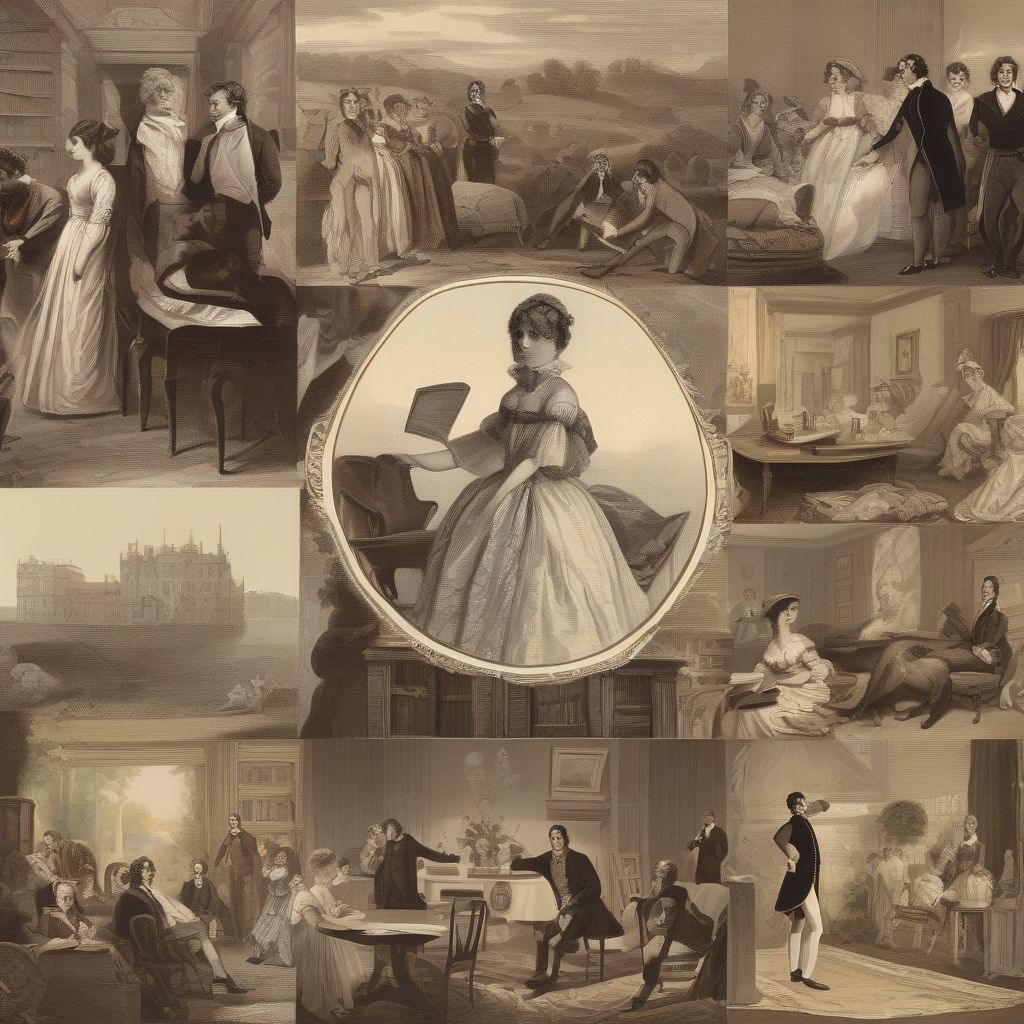Have you ever read a book that made you laugh while simultaneously making you think? Chances are, you’ve encountered the powerful duo of irony and satire. These literary devices have been employed by writers for centuries, adding depth, humor, and social commentary to some of the most celebrated works of classic literature. Let’s delve into the fascinating world of irony and satire and explore their impact on shaping our understanding of the human condition.
Defining Irony and Satire
Irony: A Twist of Fate
Irony, at its core, involves a discrepancy between appearance and reality. It’s the gap between what is said and what is meant, what is expected and what actually happens, or what appears to be true and what actually is true. There are several types of irony, including:
- Verbal irony: Saying the opposite of what is meant, often for humorous or sarcastic effect.
- Situational irony: When the outcome of a situation is the opposite of what was expected.
- Dramatic irony: When the audience or reader knows something that the characters do not.
Satire: Holding Up a Mirror to Society
Satire, on the other hand, is a genre of literature that uses humor, irony, exaggeration, or ridicule to expose and criticize human folly, vice, or societal issues. It aims to provoke change or at least raise awareness through laughter and wit. Satire can be gentle and playful, or it can be biting and aggressive, depending on the target and the author’s intent.
Irony and Satire in Action: Examples from Classic Literature
Pride and Prejudice by Jane Austen: A Dance of Irony
Austen masterfully employs irony throughout Pride and Prejudice. Elizabeth Bennet’s initial prejudiced judgments of Mr. Darcy, based on his seemingly arrogant demeanor, turn out to be completely wrong, a classic example of dramatic irony. Furthermore, the societal pressures and expectations surrounding marriage are subtly satirized through the portrayal of characters like Mrs. Bennet.
Gulliver’s Travels by Jonathan Swift: A Voyage into Satire
Swift’s Gulliver’s Travels is a prime example of political and social satire. Through Gulliver’s fantastical journeys to Lilliput, Brobdingnag, and other strange lands, Swift satirizes the flaws and absurdities of human nature, government, and society as a whole. The depiction of the petty squabbles of the Lilliputians, for instance, serves as a commentary on the political climate of Swift’s time.
Candide by Voltaire: Optimism Turned on its Head
Voltaire’s Candide uses satire to challenge the philosophical concept of optimism. The protagonist, Candide, experiences a series of misfortunes that relentlessly undermine his belief that “all is for the best in the best of all possible worlds.” The exaggerated misfortunes and absurd situations satirize the naivete of blind optimism and expose the harsh realities of the world.
Animal Farm by George Orwell: Allegory and Satire
Orwell’s Animal Farm is a powerful allegorical satire of the Russian Revolution and the rise of Stalinism. By depicting the animals’ overthrow of the human farmer and the subsequent establishment of their own society, Orwell critiques the corruption and abuse of power that can arise from revolutionary ideals. The pigs, who gradually take control, represent the totalitarian regime, and their manipulation of language and propaganda is a chilling commentary on the dangers of unchecked authority.
Catch-22 by Joseph Heller: The Absurdity of War
Heller’s Catch-22 satirizes the bureaucratic insanity of war through the paradoxical situation faced by the protagonist, Yossarian. He wants to be grounded for insanity, but the very act of wanting to avoid dangerous missions proves his sanity, thus trapping him in the system. This absurd circular logic exposes the dehumanizing nature of war and the illogical rules that govern it.
 Irony and Satire in Literature
Irony and Satire in Literature
The Enduring Power of Irony and Satire
Irony and satire, when skillfully employed, can be incredibly effective tools for social commentary, political criticism, and philosophical exploration. They allow authors to engage with complex issues in a way that is both thought-provoking and entertaining. By making us laugh, they also make us think, challenging our assumptions and prompting us to question the world around us. These literary devices have played a crucial role in shaping classic literature and continue to resonate with readers today, reminding us of the enduring power of wit and the importance of critical thinking.
Conclusion
From Austen’s subtle social critiques to Swift’s biting political satire, irony and satire have played a crucial role in shaping classic literature. These literary devices offer a powerful lens through which to examine human folly, societal issues, and the complexities of the human condition. By blending humor and insight, they engage readers on multiple levels, prompting both laughter and reflection. The enduring popularity of these works testifies to the power of irony and satire to illuminate the human experience and provoke meaningful conversations.
We encourage you to share your thoughts on the role of irony and satire in your favorite classic novels. What examples have resonated with you the most? Let’s continue the conversation in the comments below!



